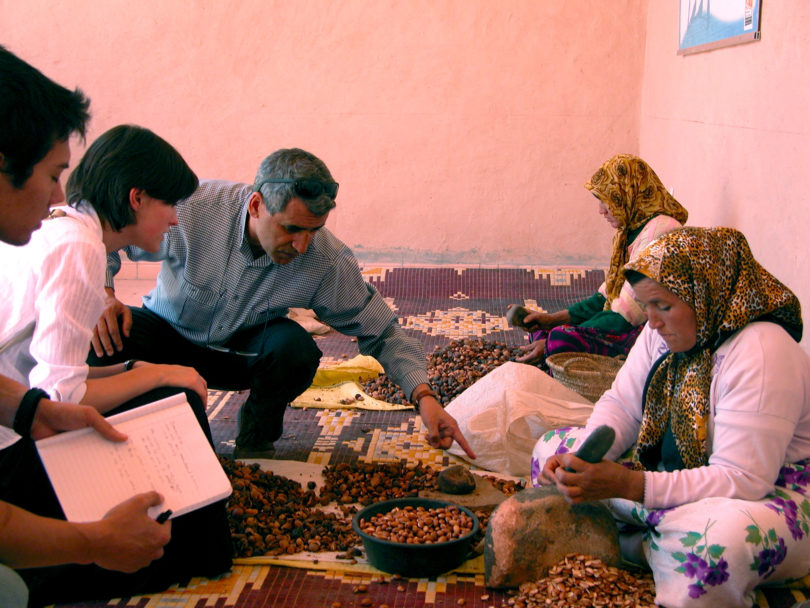Disease, toxic environments, rudimentary labor practices, human rights abuses and cultural intolerance are fixtures in the world graduates enter year after year. By weaving the realities of global life into the curricula, UGA engineering professor William Kisaalita is making it possible for students to experience world issues firsthand and participate in finding solutions.
A native of Uganda, Kisaalita balances his biomedical research with a concern for preparing future leaders.
“As an international person, I want to provide students with a perspective that will stay with them and affect what they become,” Kisaalita says.
For his students, international aspects are incorporated in a required capstone engineering design course though overseas projects. Groups of students work with peers from around campus and across the globe through an entire semester to address problems. During spring break, students travel to the location to gain insights and context firsthand; upon their return, they complete the design, and in some cases, fabricate a prototype. The course has been offered five times, with projects from Africa and South America.
The projects and their impacts are centered on people and communities, where the concept of a solution is tailored to the local culture. One group of students spent the semester focused on a women’s Argan oil cooperative in Morocco, seeking to improve some of the most arduous aspects of the work with culturally appropriate, nut-cracking technology. There, unwed or widowed women with no place in the local society support themselves and serve a crucial function in the village. Designing a device that improves the activity without altering the social fabric of the community is a unique opportunity for students to generate culturally sensitive, sustainable solutions.
“I feel like it changed my life,” says Meghan Shealy, a biomedical engineering major headed for graduate school at Yale next fall whose team traveled to Morocco over spring break. “For the first time, I actually felt like an engineer. These people needed something, and I was in a position to help them.”
Each project is site-specific, and the different requirements allow Kisaalita to augment the student groups with a variety of UGA expertise.
“We always include a member of the team who is not an engineer,” he says. Students from economics, poultry science and horticulture have been involved thus far. Participants compose personal reflections of their experience and the groups write up their work in a formal paper that is submitted for publication.
“We want a design that doesn’t cost too much to produce,” Kisaalita says, “to avoid solutions, in other words, that may call for a half-million-dollar investment.”
These might involve the World Bank or other development agency and take years to realize. Conversely, he recently installed in Burkina Faso a $2,000 prototype for a solar-powered guinea egg hatchery incubator whose performance has exceeded expectations.
The projects evolve through local partners who champion the new technology. Kisaalita’s first project began with personal contacts in Uganda; he now partners with nongovernmental organizations across the world to develop projects and expand the program with more UGA students and faculty. Intramural support has come from the Office of Global Programs and the Vice President for Public Service and Outreach; external support has been provided by the National Science Foundation and the USDA.
The path to lifelong learning and global awareness starts with small steps, says Kisaalita.
“These students are thinking, and eager to get involved with something larger and as educators we must be attentive to providing these types of challenges,” he says.








